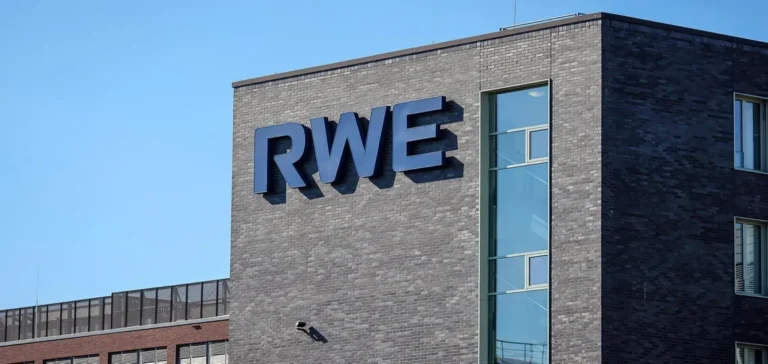German energy group RWE AG reported adjusted EBITDA of €2.1bn ($2.29bn) in the first half of 2025, alongside adjusted net income of €800mn ($872mn), according to results published on August 14. Adjusted earnings per share reached €1.06, representing 50% of the full-year target of €2.10.
Segment results show mixed performance
The Offshore Wind segment generated adjusted EBITDA of €643mn ($701mn), down from €828mn in the same period in 2024. This decrease was mainly due to weaker wind conditions in Europe and lower revenues from electricity sales without guaranteed prices. In contrast, the Onshore Wind and Solar segment increased its revenues to €830mn ($905mn), up from €730mn a year earlier, driven by new generation capacity coming online.
Flexible Generation posted adjusted EBITDA of €595mn ($648mn), compared to €1.01bn in 2024, reflecting a forecasted normalisation of margins on forward electricity sales. The Supply and Trading segment saw a sharp decline, delivering only €16mn, versus €318mn previously, due to weak performance in proprietary trading.
Growing portfolio despite debt pressure
Since the end of June 2024, RWE has commissioned 2.1 gigawatts (GW) of new capacity, including 700 megawatts (MW) during the first half. The group now operates an integrated portfolio of 38.4 GW comprising renewables, batteries and flexible generation. Currently, 11.2 GW are under construction, with more than 3 GW scheduled to be commissioned by the end of 2025.
Net debt stood at €15.5bn ($16.94bn) as of June 30, 2025, up from the end of 2024, mainly due to net investments of €2.5bn. RWE plans to invest €7bn ($7.65bn) over the full year while keeping within its internal leverage limit of 3.0 times adjusted EBITDA.
Forecasts confirmed and long-term targets unchanged
RWE confirmed its guidance for the full year 2025, with adjusted EBITDA expected between €4.55bn and €5.15bn, and adjusted net income between €1.3bn and €1.8bn. The company also plans to raise its dividend to €1.20 per share.
Long-term targets remain unchanged, with adjusted earnings per share expected to reach approximately €3 in 2027 and €4 in 2030. “Our portfolio expansion is progressing rapidly,” said Markus Krebber, Chief Executive Officer of RWE AG, as quoted in the release.






















